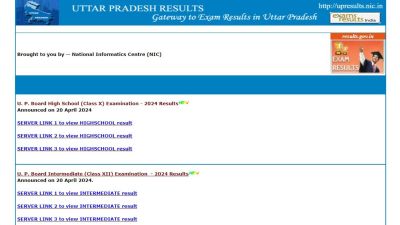- India
- International
Explained: How to tax tech giants profiting from ‘away’
In essence, the proposal, called “Unified Approach”, is to shift the standard of taxation from physical presence to sales in a particular market. That is, the companies will have to pay more taxes in the markets in which they sell more.
 “Countries like India understand that we can’t go ahead without seriously improving tax certainty,” Pascal Saint-Amans, head of tax at the OECD’s Centre for Tax Policy and Administration, said in the International Tax Review.
“Countries like India understand that we can’t go ahead without seriously improving tax certainty,” Pascal Saint-Amans, head of tax at the OECD’s Centre for Tax Policy and Administration, said in the International Tax Review.
The Organisation of Economic Co-operation and Development (OECD), the global grouping of 36 mostly high-income, free-market economies, has released a consultation paper proposing changes in the rules for taxing Internet giants such as Facebook, Apple, Google, Amazon, and Netflix.
In essence, the proposal, called “Unified Approach”, is to shift the standard of taxation from physical presence to sales in a particular market. That is, the companies will have to pay more taxes in the markets in which they sell more.
“Countries like India understand that we can’t go ahead without seriously improving tax certainty,” Pascal Saint-Amans, head of tax at the OECD’s Centre for Tax Policy and Administration, said in the International Tax Review.
Why new taxation laws
The ongoing global battle over how to tax the digital economy is yet to reach resolution. As of now, “highly digitalised businesses” can operate remotely and have high profits. Many companies have moved their source of profits to countries with low tax rates, such as Ireland.
The proposal would give new taxing rights to countries with many users of such business models. India is among countries that rely on a “significant economic presence model”. In April, the Income-Tax Department proposed new taxing norms for MNCs, with a different weightage for digital companies, incorporating the number of users in India.
Designing a new rule

The key to the proposal is that the “new nexus” would be based on sales. A “nexus” in international tax refers to the operating presence in a country that makes a company taxable. “The new nexus rule would address this issue by being applicable in all cases where a business has a sustained and significant involvement in the economy of a market jurisdiction, such as through consumer interaction and engagement, irrespective of its level of physical presence in that jurisdiction,” said the OECD report.
The proposal suggests designing the new rule and determining significant involvement in the jurisdiction by assigning a revenue threshold in the market. It considers a 750-million-Euro revenue threshold. This would allow the rule to encompass those who enter the market through a distributor. It also means the rules would apply not just to large tech multinationals, but any firms with a presence online, such as automakers.
The proposal focuses on “large consumer-facing businesses, broadly defined, e.g. businesses that generate revenue from supplying consumer products or providing digital services that have a consumer facing element”. The report states that this definition will need further articulation, but its recommendation exempts resource extraction companies like oil companies.
What’s next
The proposal leaves many questions unanswered — in particular, how much profit should be reallocated to the country. “The choice of this amount will ultimately be the result of a political agreement that needs to be acceptable to all members of the Inclusive Framework, small and large, developed and developing,” the report states.
Stakeholders can submit their responses by November 12.
Officials hope a new tax framework could be agreed upon by early 2020. G20 finance ministers are expected to discuss the proposal this week, and countries in favour of new laws could begin negotiations thereafter.
Among Internet giants, Amazon has welcomed the proposal, according to a report in The New York Times quoting a company spokesperson.
More Explained
Must Read
EXPRESS OPINION
Apr 20: Latest News
- 0111 hours ago
- 0220 hours ago
- 0314 hours ago
- 0422 hours ago
- 0519 hours ago









































